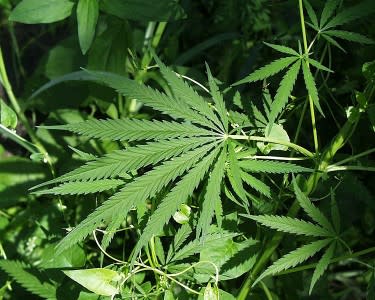Washington’s marijuana milestone and the federal law
On Tuesday, legal recreational marijuana sales start in Washington state. While such sales are technically illegal under federal law, Congress and the Obama administration are staying out of the situation, for now.
Colorado became the first state to start legal recreational pot sales on January 1, 2014, amid a cloud of publicity. Both states approved legalized marijuana in November 2012 voter referendums, but they’ve taken different regulatory and logistical paths to making a state-sponsored pot economy a reality.
And so far, both states mostly have avoided direct run-ins with the federal government.
In August 2013, Attorney General Eric Holder announced that the Justice Department wouldn’t criminally prosecute recreational marijuana users and state-approved growers and vendors in Colorado and Washington.
However, marijuana remains illegal under the federal Controlled Substances Act as a Schedule 1 substance. In his memo announcing the decision, Holder established new guidelines for federal prosecutors in all states to follow for federal marijuana cases.
Holder’s decision averted a possible constitutional clash around state laws that seemingly contradict federal laws. But it left several other issues unresolved.
One big question is how state-approved marijuana vendors can access banking accounts. A meeting in Washington, D.C., in December 2013 involving the Bank Secrecy Act Advisory Group was a first step in trying to address that issue. The panel, known as BSAAG, evaluates issues related to money laundering.
In February 2014, two policy decisions followed from the Obama administration. The Treasury Department issued rules to make it easier for banks to do business with legal marijuana dispensers. And the Justice Department directed U.S. attorneys not to pursue banks that do business with legal marijuana dispensers as long as the dealers agreed to Holder’s August 2013 guidelines.
However, banks were slow to embrace the policy decisions and the risks that come with them, especially with the possibility that both executive departments could reverse their policy decisions at a later date.
In June 2014, Colorado tried, in a symbolic way, to reassure pot businesses by setting up a state-level banking system for legal marijuana companies. But the bankers seemed unimpressed.
“We don’t think it can be effective, and it can never get off the ground,” Colorado Bankers Association CEO Don Childears told Time magazine.
And then there is the role of Congress in the legal marijuana controversy.
Congress is unlikely to act in the short term to change the Controlled Substances Act, but pro-marijuana forces saw another symbolic victory on May 30.
The House approved a measure to block the federal government from interfering with state laws on marijuana and hemp, as well as a separate measure to cut funds for Drug Enforcement Agency raids on medical marijuana operations.
However, both measures would need to go through the Senate as part of a much-larger package of legislation, and they face considerable hurdles during the current session of Congress.
Allen St. Pierre, the executive director of the National Organization for the Reform of Marijuana Laws, told CQ Roll Call that he expects Senate opposition and that there are Senators who “would rather impale themselves on a sword in the middle of the Senate floor than ever vote for anything at all that would diminish or retard” current federal laws the prohibit marijuana use.
However, some marijuana supporters point out that the President also has the power under the Controlled Substance Act to change the law itself and remove pot from the Schedule 1 list of drugs, without consulting Congress.
And Congress might have a more pressing issue to deal with closer to home: a movement inside the District of Columbia to have voters approve legalized marijuana within the District itself.
House Republicans have endorsed legislation that would prevent the District of Columbia from spending any money on measures that would loosen rules against marijuana.
But as the Washington Post points out, if legalization forces get their pro-pot petition on the November 4 ballot for local voters in the District, and Congress doesn’t approve measures blocking the move, Congress would be forced to take a stand on legalization.
“Should federal lawmakers pass a spending plan with the restriction before Nov. 4, there is precedent for D.C. elections officials to decide that they are prohibited from counting votes on the issue,” said the Post’s Aaron Davis. ”If Congress hasn’t passed a budget by then, however, there is a strong chance that on Nov. 4, the District will legalize pot.”
Scott Bomboy is the editor in chief of the National Constitution Center.
Recent Stories on Constitution Daily
Constitution Check: Are the female Justices voting their gender?


